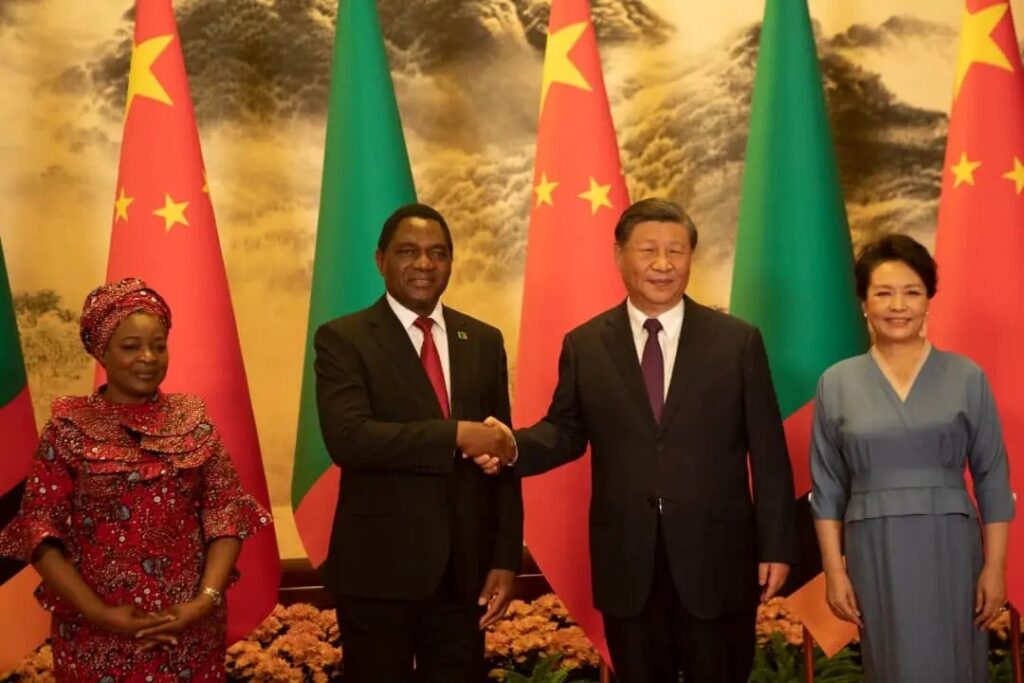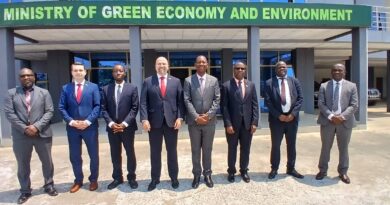China and Zambia Strengthen Comprehensive Partnership During President Hichilema’s State Visit
During President Hakainde Hichilema’s State Visit to China in September 2023, the People’s Republic of China and the Republic of Zambia solidified their comprehensive partnership. The visit, hosted by President Xi Jinping of China, spanned from September 10 to 16, and resulted in the signing of a Joint Statement outlining their extensive discussions and agreements on various fronts.
This historic visit marks a new chapter in the bilateral relationship between these two nations, focusing on shared principles, economic cooperation, global development and security, and cultural exchanges.
China and Zambia reaffirm their support for each other in international affairs, emphasizing their shared commitment to safeguarding the interests of developing countries and promoting international equity and justice. They stand together in upholding the principles of the UN Charter, advocating for peace, development, equity, justice, democracy, and freedom as universal values.
Both nations express their support for UN reform, especially as it pertains to the representation and role of developing countries, and recognize the importance of increased African representation in the UN Security Council. Zambia expresses appreciation for China’s support during the Zambian debt restructuring process, particularly its role as Co-chair of the Official Creditors’ Committee under the G20 Common Framework.
China and Zambia commit to strengthening their collaboration under the Belt and Road Initiative (BRI) to foster mutually beneficial cooperation in various domains. They establish a green development strategic partnership to collaborate on environmental protection, combat climate change, promote the green economy, and invest in renewable energy.
Zambia welcomes Chinese investment in its new-energy battery value chain to enhance its independent industrial development. Additionally, China expresses readiness to support the upgrade and renovation of Zambia’s TAZARA Railway while adhering to market-oriented and commercial principles. Both nations welcome Chinese businesses’ participation in infrastructure development, including through Public-Private Partnerships (PPPs) and similar models.
China and Zambia acknowledge the significance of the Global Development Initiative, emphasizing the importance of development as a central international agenda. Zambia appreciates China’s achievements in the past decade and seeks to draw lessons from China’s modernization and development experience. China recognizes Zambia’s political stability and economic progress under President Hichilema’s leadership.
Both countries pledge support for each other’s independent development paths and principles, with Zambia reaffirming its commitment to the One-China Principle. The two nations agree to enhance their trade and investment cooperation, with China extending an invitation to Zambia to participate in the China International Import Expo and facilitating market access for Zambian products.
Zambia endorses China’s Global Security Initiative, and both nations commit to collaborating for enduring global peace and development. They stress the importance of multilateralism, respect for sovereignty, and peaceful conflict resolution.
The two sides agree to deepen exchanges and cooperation in various security-related areas, including military engagements and combating transnational crimes. They support dialogue and negotiations as the sole viable solution to the Ukraine Crisis and call upon the international community to address the crisis’s spillover effects.
Both countries pledge to implement the Global Civilization Initiative, emphasizing the need for civilizational exchanges and goodwill among their peoples. They will bolster party-to-party exchanges based on principles of independence, equality, mutual respect, and non-interference in internal affairs.
Zambia expresses its support for China’s Global Civilization Initiative and agrees to enhance cooperation in culture, tourism, education, public health, and other areas. Both nations anticipate the opening of direct flight routes to facilitate easier personnel exchanges.



